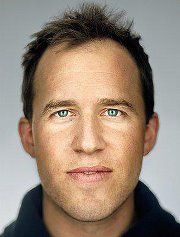Facebook CTO: most people have modified their privacy settings


He only talked for about 15 minutes, but All Facebook managed to transcribe some very interesting quotes. Here's what he said about privacy:
The majority of people on Facebook have modified their privacy settings. I think the people who use Facebook a lot are very, very aware of privacy settings. They know exactly what their current boyfriend or ex can see. As our service has grown, there's a lot of increasing scrutiny on how we provide our service. If we can make your privacy controls so transparent that you are comfortable with sharing data on Facebook, that's good. We certainly hope to make the privacy settings as accessible as possible.
Two months ago, Facebook moved its privacy controls inline. The changes are meant to make it easier to know what you are sharing on your profile as well as who you are sharing the content with.
When asked about whether Facebook will ever allow users to transfer their data from the social network to Google+, Taylor called it a good question and responded as follows:
I think data portability is interesting because it's very easy in the context of single-user services. Bringing your data elsewhere is simple then. It gets complex with the intersection of several features. And an example of that is the address book on Facebook. If I put my contacts there and put privacy settings on, what are my rights? Should you have the ability to take that data to another site with different privacy?
Last month, Facebook added microformats support to its Download Your Information feature. The addition means your exported profile information, posts, photos, and videos come in a useful package that can be more easily parsed.
When the Facebook Timeline feature was revealed last month, I described the private activity log as a new feature that "shows you everything you shared since you joined Facebook" and lets "you click on any post to feature it on your Timeline so your friends can see it too." When Taylor was asked about the Activity Log, he gave a bit more information:
Activity log is a new feature, part of our timeline. It’s a private page that’s the backend of your timeline, all content you’ve shared on Facebook for all time. You can browse it, and navigate by time. It’s a single place on Facebook where you can see all your information. If we can give people granularity over the control of sharing data, the more these products will see. If you’re going for a job interview, you can go back and change photos of yourself posted in college. A lot of that was there before but we made it more accessible.
Last but not least, Taylor was asked about Napster co-founder Sean Parker's recent statements that Facebook's power users have gone to Twitter, Google+. Here's his answer:
People who were in college when Facebook was only available to students make up the power users; Facebook is very concerned about addressing their needs for nuanced controls and features. He worries that Facebook has moved toward complexity too often. Smart friend lists have been well received. Subscribe is also designed to reach a broad audience. Our news feed is really good at finding you the most engaging content. The folks who have turned on subscribe have seen unprecedented levels of engagement. I’m really bullish about that feature because it has a lot of potential to reach all 800 million users.
At previous Web 2.0 conferences, Facebook co-founder CEO Mark Zuckerberg was answering questions. I think the company's CTO did a decent job of filling Zuckerberg's shoes. What are your thoughts?